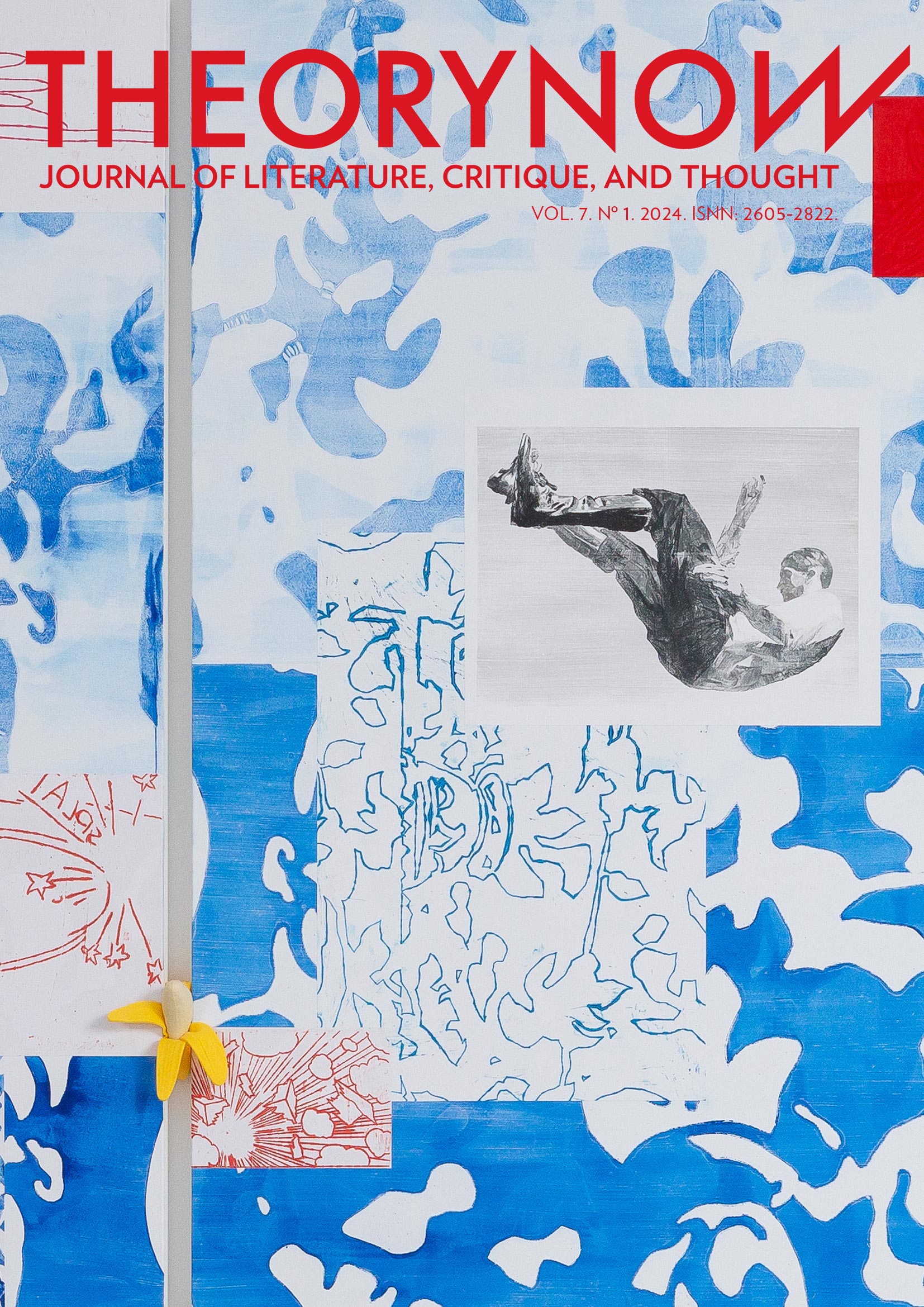Women's Writing in the Gears of Progressive Utopia: Claire Démar, Aleksandra Kollontai
DOI:
https://doi.org/10.30827/tn.v7i1.29049Keywords:
history of feminism, New woman, women's writing, social utopia, Walter Benjamin, Claire Démar, Alexandra KollontaïAbstract
This paper compares, starting from the idea of a "female culture" (Simmel), the writings of two women who belong to the history of feminism from the nineteenth to the first half of the twentieth century. These are Claire Démar, engaged with Saint-simonianism, who committed suicide in 1833, and Aleksandra Kollontai, a journalist and politician close to Lenin and Clara Zetkin. The question of engagement is developed in two opposite directions. The first—which grounds on the posthumous text Ma loi d’avenir [My law of the future] by Démar—is akin to an afterthought critique that has its back turned to the future, despite its ideology of progress which draws on the language of Saint-Simonianism. The second—following the Paths of love by Kollontai—stands out as a prospective critique. The archeology of feminism therefore is bogged down in the unstable ground on which the woman-writer constitutes herself as a subject. The failure of these two politico-aesthetic projects further escapes the critique of social utopias in the Communist Manifesto (1848). With Benjamin, sensitive to the ideas of the "New Woman", as well as to matriarchal prehistory, I seek to outline an equilibrium between the solitary, monadic individual and modern society.
Downloads
References
Abensour, Miguel. « L’utopie socialiste : une nouvelle alliance de la politique et de la religion ». Le Temps de la Réflexion. no. 2, 1981, pp. 61-102.
Aubenas, Jacqueline et al. « Les femmes et la politique ». Les Cahiers du Grif, no. 6, 1975, pp. 5-23, https://doi.org/10.3406/grif.1975.974.
Benjamin, Walter. Paris. Capitale du XIXe siècle. Le livre des passages. Traduit par Jean Lacoste, Paris, Cerf, 1993.
___. Gesammelte Schriften (abrégé GS). Édité par Rolf Tiedemann et Hermann Schweppenhäuser, 7 tomes en 14 volumes, Francfort-sur-le-Main, Suhrkamp, 1991.
___. Écrits français. Paris, Gallimard, 1991.
___. Briefe. Édité par Scholem Gershom et Adorno W. Theodor., Francfort-sur-le-Main, Suhrkamp, 1978.
___. « La femme doit-elle participer à la vie politique ? Contre : La poétesse Colette ». Colette, édité par Bonal Gérard et Maget Frédéric, Paris, L’Herne, 2011, pp. 204-206.
Blättler, Christine. Benjamins Phantasmagorie. Wahrnehmung am Leitfaden der Technik. Berlin, Dejavu Theorie, 2021.
Buci-Glucksmann, Christine. Walter Benjamin und die Utopie des Weiblichen. Hamburg, VSA, 1984.
Cixous, Hélène. Le Rire de la Méduse et autres ironies. Paris, Galilée, 2010.
Dante. La Divine Comédie. Paris, La Pléiade, 2021.
Daumier, Honoré. Intellectuelles (Bas Bleus) et femmes socialistes. Paris, Éditions André Sauret, 1974.
Démar, Claire. Ma loi d’avenir. Édité par Voilquin Suzanne, Paris, Hachette, 1834.
Fraisse, Geneviève et Michelle Perrot (éds.). Histoire des femmes en Occident. IV : Le XIXe siècle. Paris, Perrin, 2002.
Gautier, Théophile. Mademoiselle de Maupin. Nouvelle édition. Paris, Charpentier et Cie, 1876.
Hegel, Georg Wilhelm Friedrich. Vorlesungen über die Ästhetik III. Francfort-sur-le-Main, Suhrkamp, 1986.
Hölscher, Lucian. « Utopie ». Geschichtliche Grundbegriffe. Historisches Lexikon zur politischsozialen Sprache in Deutschland, t. 2. Édité par Brunner Otto ; Conze Werner et Koselleck Reinhart, Stuttgart, Klett-Cotta, 2004, pp. 733-780.
Kollontaï, Alexandra. « Place à l’Éros ailé ! (Lettre à la jeunesse laborieuse, 1923) ». Femmes, corps et révolution. Alexandra Kollontaï, Asja Lacis, Rosa Luxemburg, Clara Zetkin. Paris, Eterotopia, 2020, pp. 99-125.
___. Marxisme et révolution sexuelle. Édité par Stora-Sandor Judith, Paris, La Découverte, 2001.
___. Wege der Liebe. 1925. Traduit par Federn Kohlhaas Etta, Bâle, Stroemfeld/Roter Stern, 1980.
Koselleck, Reinhart. « Geschichte, Historie ». Geschichtliche Grundbegriffe. Historisches Lexikon zur politisch-sozialen Sprache in Deutschland, t. 2. Édité par Brunner Otto ; Conze Werner et Koselleck Reinhard. Stuttgart, Klett-Cotta, 2004, pp. 593-717.
Marx, Karl. Manifeste du parti communiste. Paris, Ère nouvelle, 1895.
Monateri, Francesca. Katechon: Filosofia, politica, estetica. Rome, Bollati Boringhieri, 2023.
Pavard, Bibia ; Rochefort Florence et Zancarini-Fournel Michelle (éds.). Ne nous libérez pas, on s’en charge. Une histoire des féminismes de 1789 à nos jours. Paris, La Découverte, 2020.
Simmel, Georg. « Weibliche Kultur ». Philosophische Kultur. Über das Abenteuer, die Geschlechter und die Krise der Moderne. Gesammelte Essais. Berlin, Klaus Wagenbach, 1998, pp. 219-253.
Taubes, Jacob. Eschatologie occidentale. Traduit par Lellouche Raphaël et Pennetier Michel, Paris, Éditions de l’éclat, 2009.
Voßkamp, Wilhelm. « Utopie und das Utopische ». Handbuch Literatur & Philosophie, édité par Allerkamp Andrea et Schmidt Sarah, Berlin/Boston, De Gruyter, 2021, pp. 363-375.
Weigel, Sigrid. Topographien der Geschlechter. Kulturgeschichtliche Studien zur Literatur. Reinbek/Hambourg, Rowohlt, 1990.
Wolff, Janet. « The Feminine in Modern Art. Benjamin, Simmel and the Gender of Modernity ». Theory, Culture & Society, vol. 17, no. 6, 2000, pp. 33-53.
Zetkin, Clara. « L’étudiant et la femme. Ni uniquement une femme, ni uniquement un être humain (1899) ». Je veux me battre partout où il y a de la vie, édité par Hermann Marie, Paris, Hors d’atteinte, 2021, pp. 63-88.
Downloads
Published
How to Cite
Issue
Section
License
Theory Now. Journal of Literature, Critique, and Thought is an immediate open-access publication which is available at no cost for readers and authors alike. Authors are not charged any kind of fee for the editorial processing of their articles. Reading, downloading, copying, distributing, printing, searching, linking or reusing all published articles for non-commercial uses is allowed on the condition of citing the author, the journal and the editing body. All intellectual material published in this journal is protected under a Creative Commons Attribution-NonCommercial 3.0 Spain license.
Dissemination of the articles in social (Facebook, Twitter, Linkedin, etc.) and scientific networks (ResearchGate, Academia.edu, etc.), public repositories at universities and other institutions, blogs, personal or institutional websites, Google Scholar, ORCID, ResearchID, ScopusID, etc. is strongly encouraged. In all cases, the intellectual property of the articles and any possible monetary profits derived from them belong exclusively to the authors.













